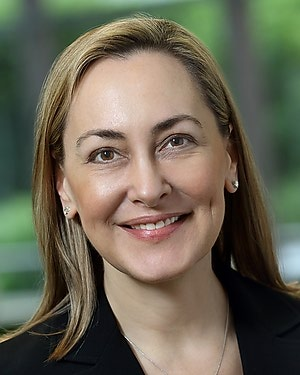Research & Clinical Trials
The Head and Neck Cancer Center hosts a diverse team of researchers interested in advancing the knowledge about head and neck cancer, with the ultimate goal of translating it to patient care. We collaborate with a diverse team of experts and the Bloomberg~Kimmel Institute for Cancer Immunotherapy.
General contact: Zubair Khan, M.D. (Ototrials@live.johnshopkins.edu)
In this section:
Screening and Prevention
Myoarchitectural determinants of oropharyngeal bolus flow in patients with lingual carcinoma
- IRB00275551, NCT00000000
Principal Investigator: Harry Quon, M.D. (hquon2@jhmi.edu)
Objective: Evaluate swallow dysfunction and myoarchitecture during and after treatment for oral and base of tongue squamous cell carcinoma.
Eligibility Criteria:
- Oral and base of tongue tumors pre and post treatment MRI scans.
- Base of tongue or oral tongue squamous cell carcinoma
Trials for Patients Who've Been Diagnosed With a Head and Neck Cancer for the First Time
Immunotherapy Trial: Study of Neoadjuvant targeting of myeloid cell populations in combination with Nivolumab in head and neck cancer patients undergoing surgery (Spark2)
- IRB00254591, NCT04848116
Contact: Tanguy Seiwert, M.D. (443-287-8312 or Ototrials@live.johnshokins.edu) and Zubair Khan, M.D. (410-955-3157 or Ototrials@live.johnshopkins.edu)
Principal Investigator: Tanguy Seiwert, M.D.
Objective: To assess safety and feasibility of preoperative nivolumab in combination with BMS-986253 (anti-interleukin-8) in patients with squamous cell carcinoma of head and neck (SCCHN) who will undergo surgery.
Eligibility Criteria: Subjects must be human papillomavirus (HPV) negative (confirmed testing for oropharyngeal primary tumors — if otherwise suspected HPV positivity, e.g., some oral cavity or sinonasal tumors if, e.g., absence of smoking) OR (if HPV+) be high risk, based on a 20-pack-a-year smoking history, OR any one of these high risk factors such as a) recurrent disease/failure of prior curative therapy, b) evidence of distant metastatic spread, c) involvement of multiple lymph nodes, d) non-HPV16 HPV, or e) elevated HPV cfDNA levels (≥20 fragments per ml).
A Phase II trial of Cemiplimab, or Cemiplimab-chemotherapy, followed by biomarker-guided treatment for patients with HPV head and neck cancer (MINIMA)
- IRB00259330, NCT04988074
Contact: Tanguy Seiwert, M.D. (443-287- 8312 or tseiwert@jhmi.edu) and Zubair Khan, M.D. (410-955-3157 or Ototrials@live.johnshopkins.edu)
Principal Investigator: Tanguy Seiwert, M.D.
Objective: To determine if it is feasible to use neoadjuvant immunotherapy (or immunotherapy plus chemotherapy) to reduce treatment intensity and improve long-term quality of life while maintaining very high cure rates.
Eligibility Criteria: Subjects must have pathologically confirmed HPV-positive head and neck squamous cell carcinoma of the oropharynx. Confirmed HPV-positive disease of other subsites are uncommon but also eligible.
Neoadjuvant Pembrolizumab and IO102-103 prior to curative-intent surgical care for squamous cell carcinoma of the head and neck (SCCHN) (KIEO)
- IRB00362497, NCT05977907
Contact: Tanguy Seiwert, M.D. (443-287-8312 or tseiwert@jhmi.edu) and Zubair Khan, M.D. (410-955-3157 or Ototrials@live.johnshopkins.edu)
Principal Investigator: Tanguy Seiwert, M.D.
Objective: This research is being done to see if the investigational combination of study drugs (Pembrolizumab and IO102-IO103) before surgery in people with surgically resectable (removable or curable) newly diagnosed SCCHN will shrink the tumor more than 50 percent at the time of surgery.
Eligibility Criteria: People 18 years or older with newly diagnosed, surgically resectable non-metastatic squamous cell carcinoma of the head and neck may join.
Nivolumab Alone or Plus Relatlimab or Ipilimumab for Patients With Locally-Advanced Unresectable or Metastatic Basal Cell Carcinoma
- IRB00166274, NCT03521830
Principal Investigator: William Sharfman, M.D. (Ponsal@jhmi.edu)
Objective: This is a phase 2 trial assessing the efficacy of nivolumab, alone or in combination with relatlimab or ipilimumab in treating patients with locally-advanced unresectable or metastatic basal cell carcinoma.
Eligibility Criteria:
-
Locally-Advanced Unresectable or Metastatic Basal Cell Carcinoma (BCC).
-
Patients must have disease that is not curable with surgery, or for whom surgery would be intolerable.
-
Naïve to therapy, or have received a hedgehog inhibitor (e.g., Erivedge, Odomzo) and/or anti-PD-1
Neoadjuvant Treatment with Selpercatinib in RET-Altered Thyroid Cancers
Principal Investigator: Leila Mady, M.D. (Ototrials@live.johnshopkins.edu)
Objective: Neoadjuvent Selpercatinib in RET-Altered Thyroid Cancers
Eligibility Criteria:
- RET gene alteration
- T3 or T4 by imaging or invasive/bulky nodal disease or recurrent/residual invasive bulky nodal disease
- At least one measurable lesion as defined by RECIST 1.1
- No prior treatment with selective RET inhibitor
Trials for Patients Whose Head and Neck Cancer Has Returned After Treatment
Neoadjuvant Pembrolizumab and IO102-103 prior to curative-intent surgical care for squamous cell carcinoma of the head and neck (SCCHN) (KIEO).
- IRB00362497, NCT05977907
Contact: Tanguy Seiwert, M.D. (443-287-8312 or tseiwert@jhmi.edu) and Zubair Khan, M.D. (410-955-3157 or Ototrials@live.johnshopkins.edu)
Principal Investigator: Tanguy Seiwert, M.D.
Objective: This research is being done to see if the investigational combination of study drugs (Pembrolizumab and IO102-IO103) before surgery in people with surgically resectable (removable or curable) newly diagnosed SCCHN will shrink the tumor more than 50 percent at the time of surgery.
Eligibility Criteria: People 18 years or older with newly diagnosed, surgically resectable non-metastatic squamous cell carcinoma of the head and neck may join.
Phase II Randomized Trial of Radiotherapy with or without Cisplatin for Surgically Resected Squamous Cell Carcinoma of the Head and Neck (SCCHN) with TP53 Sequencing
- IRB00391176, NCT02734537
Principal Investigator: Tanguy Seiwert, M.D. (phase1trials@jhmi.edu)
Objective: Phase II (two arms-Randomized). Arm A: Radiation 60 Gy IMRT. Arm B: radiation 60 By IMRT & cisplatin
Eligibility Criteria:
- Pathologically proven diagnosis of squamous cell carcinoma pathologic stage III or IVA (AJCC 8): T3-T4a, N0-3, M0 or T1-T2, N1-3, M0.
- Total resection of the primary tumor with curative intent
- Oropharynx primary must be HPV NEG.
- Patients with a history of a curatively treated malignancy must be disease-free for at least two years
Combination Radiotherapy and Radiopharmaceutical Therapy Treatment Planning for Thyroid Cancer
- IRB00241274, NCT04892303
Principal Investigator: Harry Quon, M.D.
(phase1trials@jhmi.edu)
Objective: The goal of this study is to evaluate combined radioactive iodine (RAI, 131-I) and external beam radiotherapy (XRT) to optimize the radiation dose delivered to treat well differentiated thyroid cancers (DTC) with iodine-avid metastases.
Eligibility Criteria:
- Histologically confirmed papillary or follicular thyroid carcinoma- collectively referred to as: differentiated thyroid carcinoma
- Must have non-resectable macroscopic invasion into cervical soft tissue and or non-resectable distance metastases. Creatinine clearance >70 ml/min/1.73 m2 or normal GFR
A Phase I Clinical Trial Assessing the Safety and Immunologic Correlates of Heterologous Prime-Boost with pNGVL4a-Sig/E7(detox)/HSP70 and TA-HPV in Healthy Donors for Allogeneic Cellular Transplantation
- IRB00243952, IRB00244082, NCT04713046
Principal Investigator: Tanguy Seiwert, M.D. (phase1trials@jhmi.edu)
Objective: Phase I Bone marrow transplantation and/or CD8+ T cell-depleted PBCs IV from a healthy donor vaccinated with HPV Vaccine (PVX1)
Eligibility Criteria:
- Pathologically confirmed incurable, locally recurrent/metastatic HPV16+ HNSCC
- HLA partially mismatched (haploidentical) related donor.
- Prior treatment with a platinum-containing regimen Indication to receive an anti-programmed cell death protein-1 (PD-1) or anti-programmed death-ligand1 (PD-L1) monoclonal antibody must have received at least one cycle of this therapy prior to receiving treatment on this trial
IO102-IO103 in Combination With Pembrolizumab as First-line Treatment for Patients With Metastatic NSCLC, SCCHN, or mUBC
- IRB00370966, NCT05077709
Principal Investigator: Tanguy Seiwert, M.D. (tadams18@jhmi.edu)
Objective: A phase 2 multi-arm (basket) trial investigating the safety and efficacy of IO102-IO103 in combination with pembrolizumab, as first-line treatment for patients with metastatic non-small cell lung cancer (NSCLC), squamous cell carcinoma of head or neck (SCCHN), or metastatic urothelial bladder cancer (mUBC).
Eligibility Criteria:
- First line in the in the recurrent metastatic setting (no prior systemic therapy in this setting)
- Squamous cell carcinoma of head and neck. PD-L1 > or = 20; can be HPV negative or positive
Study of XB002 in Subjects With Solid Tumors
- IRB00370820, NCT04925284
Principal Investigator: Tanguy Seiwert, M.D. (phase1trials@jhmi.edu)
Objective: This is a Phase 1, open-label, multicenter, dose-escalation and expansion study evaluating the safety, tolerability, PK, pharmacodynamics, and clinical antitumor activity of XB002 administered IV q3w alone and in combination with nivolumab or bevacizumab to subjects with advanced solid tumors.
Eligibility Criteria: Subjects must have received prior platinum-containing chemotherapy (including chemoradiation) for inoperable locally advanced, recurrent, or metastatic disease. Subjects must have also received ICI therapy and/or EGFR inhibitor therapy, if locally considered as standard of care and if eligible no more than 3 lines of prior systemic anticancer therapy for locally advanced or metastatic disease
Testing the Use of Investigational Drugs Atezolizumab and/or Bevacizumab With or Without Standard Chemotherapy in the Second-Line Treatment of Advanced-Stage Head and Neck Cancers
- IRB00353886, NCT05063552
Principal Investigator: Tanguy Seiwert, M.D. (phase1trials@jhmi.edu)
Objective: This phase II/III compares the standard therapy (chemotherapy plus cetuximab) versus adding bevacizumab to standard chemotherapy, versus combination of just bevacizumab and atezolizumab in treating patients with head and neck cancer that has spread to other places in the body (metastatic or advanced stage) or has come back after prior treatment (recurrent). Immunotherapy with monoclonal antibodies, such as atezolizumab, may help the body's immune system attack the cancer, and may interfere with the ability of tumor cells to grow and spread. Bevacizumab is in a class of medications called antiangiogenic agents. It works by stopping the formation of blood vessels that bring oxygen and nutrients to tumor. This may slow the growth and spread of tumor. Cetuximab is in a class of medications called monoclonal antibodies. It binds to a protein called EGFR, which is found on some types of cancer cells. This may help keep cancer cells from growing. Cisplatin and carboplatin are in a class of chemotherapy medications known as platinum-containing compounds. They work by killing, stopping, or slowing the growth of cancer cells. Docetaxel is in a class of chemotherapy medications called taxanes. It stops cancer cells from growing and dividing and may kill them. The addition of bevacizumab to standard chemotherapy or combination therapy with bevacizumab and atezolizumab may be better than standard chemotherapy plus cetuximab in treating patients with recurrent/metastatic head and neck cancers.
Eligibility Criteria:
- Progression on immune checkpoint inhibitor first-line setting for recurrent/metastatic disease
- PD-L1 expression >=1% by CPS
- No prior chemotherapy or antiangiogenic treatment
- No salivary gland squamous cell carcinoma and NO skin
- Measurable disease, ECOG 0-1,prior tx with ICI as first line metastatic/recurrent with stable disease at least 12 weeks
Combination Trial of Tipifarnib and Alpelisib in Adult Recurrent/ Metastatic Head and Neck Squamous Cell Carcinoma (R/M HNSCC)
- IRB00308405, NCT04997902
Principal Investigator: Tanguy Seiwert, M.D. (tadams18@jhmi.edu)
Objective: This phase 1/2 combination trial of tipifarnib, a farnesyltransferase inhibitor, and alpelisib, a PI3K inhibitor in participants with recurrent/metastatic head and neck squamous cell carcinoma (HNSCC) whose tumors overexpress the HRAS protein and/or are PIK3CA-mutated and/or PIK3CA-amplified.
Eligibility Criteria:
- Patients can be screened/sign pre-screening consent while on current line of therapy.
- Second line and beyond
- Must have PIK3CA-mutated and/or -amplified
- Measurable disease (per RECIST) confirmed by local radiology
- Must be able to take oral medications with food
A Study of BMS-986416 With and Without Nivolumab in Select Solid Tumors
- IRB00288442, NCT04943900
Principal Investigator: Nilofer Azad, M.D. (phase1trials@jhmi.edu)
Objective: The purpose of this study is to evaluate the safety, tolerability, drug effects, drug levels and preliminary antitumor activity of BMS-986416 when administered alone and in combination with Nivolumab in participants with select advanced solid tumors.
Eligibility Criteria:
- ECOG 0–1
- No connective tissue or AI disease
- Must have prior anti-PD(L)1 for NSCLC, SCCHN, HCCC, UC
- Part 1A Escalation: Mono tx BMS986416 NSCLC, SCCHN
Nivolumab in Treating Patients With Autoimmune Disorders and Advanced, Metastatic, or Unresectable Cancer
- IRB00210239, NCT03816345
Principal Investigator: Julie Brahmer, M.D. (phase1trials@jhmi.edu)
Objective: This phase Ib trial studies the side effects of nivolumab and to see how well it works in treating patients with autoimmune disorders and cancer that has spread to other places in the body or cannot removed by surgery. Immunotherapy with monoclonal antibodies, such as nivolumab, may help the body's immune system attack the cancer, and may interfere with the ability of tumor cells to grow and spread.
Eligibility Criteria:
- Locally advanced unresectable or metastatic basal cell carcinoma (BCC).
- HIV infected patients on effective antiretroviral therapy w/ undetectable viral load within 6 month-permitted
- Autoimmune focus: Dermatomyositis, psoriasis, rheumatoid arthritis, Sjogren’s, ulcerative colitis, systematic lupus erythematosus, systemic sclerosis, dermatomyositis, psoriasis or psoriatic arthritis
Selpercatinib Before Surgery for the Treatment of RET-Altered Thyroid Cancer
- IRB00289169, NCT04759911
Principal Investigator: Leila Mady, M.D. (Ototrials@live.johnshopkins.edu)
Objective: This phase II trial studies the effect of selpercatinib given before surgery in treating patients with thyroid cancer whose tumors have RET alterations (changes in the genetic material [deoxyribonucleic acid (DNA)]). Selpercatinib may stop the growth of tumor cells by blocking some of the enzymes needed for cell growth. Giving selpercatinib before surgery may help shrink the tumors and help control the disease.
Eligibility Criteria:
- RET gene alteration
- T3 or T4 by imaging or invasive/bulky nodal disease or recurrent/residual invasive bulky nodal disease
- At least one measurable lesion as defined by RECIST 1.1
- No prior treatment with selective RET inhibitor
Nivolumab Alone or Plus Relatlimab or Ipilimumab for Patients With Locally-Advanced Unresectable or Metastatic Basal Cell Carcinoma
- IRB00166274, NCT03521830
Principal Investigator: William Sharfman, M.D. (Ponsal@jhmi.edu)
Objective: This is a phase 2 trial assessing the efficacy of nivolumab, alone or in combination with relatlimab or ipilimumab in treating patients with locally-advanced unresectable or metastatic basal cell carcinoma.
Eligibility Criteria:
- Locally-Advanced Unresectable or Metastatic Basal Cell Carcinoma (BCC)
- Patients must have disease that is not curable with surgery, or for whom surgery would be intolerable.
- Naïve to therapy, or have received a hedgehog inhibitor (e.g., Erivedge, Odomzo) and/or anti-PD-1
Observational Studies
Study of HPV in sinonasal carcinomas: Retrospective analysis association of human papillomavirus (HPV) serology and behavioral risk factors
- IRB00270617, NCT04979000
Contact: Nyall London, M.D. (301-896-3332 or nlondon2@jhmi.edu) and Zubair Khan, M.D. (410-955-3157 or Ototrials@live.johnshopkins.edu)
Principal Investigator: Nyall London, M.D.
Objective: To evaluate the role of anatomic site, gender and race in human papillomavirus-associated head and neck squamous cell cancers (HNSCC). We will explore the role of HPV, tobacco, alcohol and drug use in HNSCC by tumor site with particular emphasis on the sinonasal cavity, as well as differences in risk factors for HPV-positive HNSCC by gender and race.
Eligibility Criteria: Patients must be 18 years of age or older with a confirmed or suspected diagnosis of sinonasal cancer.
Understanding Tobacco Use and Spending as a Modifiable Risk Factor for Financial Toxicity in Lung and Head and Neck Cancers
- IRB00407678
Principal Investigator: Leila Mady, M.D. (lmady1@jh.edu)
Eligibility Criteria:
- Must be older than 18
- English speaking with newly diagnosed lung, oral cavity, larynx, pharynx cancer
- Current smoker (defined as actively smoking at time of dx or within one month of dx)
- Newly diagnosed
Other
A Study Evaluating an Advanced Pneumatic Compression Device Versus Usual Care for Treatment of Head and Neck Lymphedema
- IRB00295806, NCT04797390
Principal Investigator: Harry Quon, M.D. (gepstei7@jhmi.edu, katielowe@jhmi.edu)
Objective: To compare the effectiveness of an APCD to Usual Care in the management of lymphedema and fibrosis (LEF) in head and neck cancer (HNC) survivors.
Eligibility Criteria:
- Treatment for HNC with lymphedema
- Must have completed curative intent cancer therapy with no evidence of cancer
- No symptomatic carotid artery disease as manifested by recent TIA, IS or amaurosis fugax
- No internal jugular venous thrombosis
Research Team
Learn more about each researcher's areas of study and publications in their profile.











